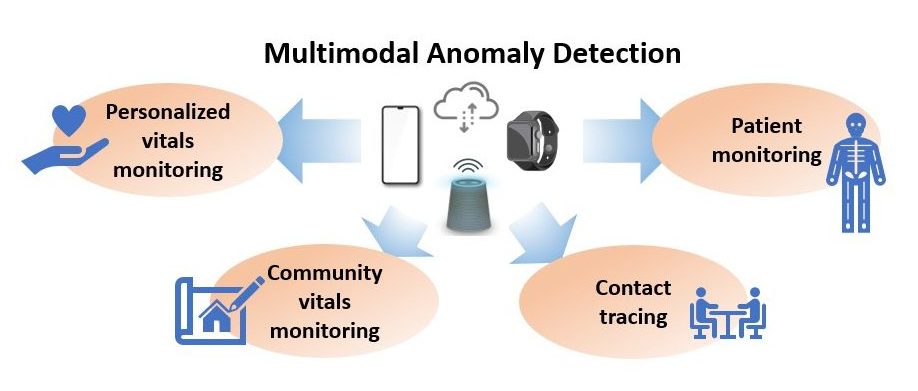Project: TRIDENT: A trimodal sensory system for detecting onset of an infection
Principal Investigator: Soumyajit Mandal
Research Collaborators: Forrest Masters, Yier Jin, Sandip Ray, Swarup Bhunia, Nikolaus Gravenstein (Anesthesiology Dept.)
Student Contributors: Junjun Huan, Parker Difuntorum, Srivalli Boddupalli, Keerthiraj Nagaraj, Naren Vikram Raj Masna, Rohan Reddy Kalavakonda, and Reiner Dizon
Overview: Researchers from the Warren B. Nelms Institute for the Connected World are developing TRIDENT, a tri-modal sensory system for detecting onset of an infection such as COVID-19. TRIDENT is built on an Internet of Things (IoT) infrastructure that utilizes a three-pronged suite of connected sensors and devices: multi-modal sensors, interactive edge devices, and secure cloud-based software. These components work in conjunction with one another to provide real-time alerts to individuals and guidelines for precautionary measures while constantly assessing the risk of contracting the virus or spreading it by alerting users when they are unintentionally violated. The system uses readily available components, such as mobile phones, making it very accessible and affordable and enabling anyone at risk to easily integrate it into their home/work environments. TRIDENT can also monitor and provide informative predictions to assess the condition of patients who are already quarantined or hospitalized and then model their disease progression. The project is now at the proof-of-concept stage, with a goal for fast-track FDA approval and pilot deployment within 6 months. UF internal funds are being used for this project, and the Nelms Institute is actively pursuing funding opportunities.
